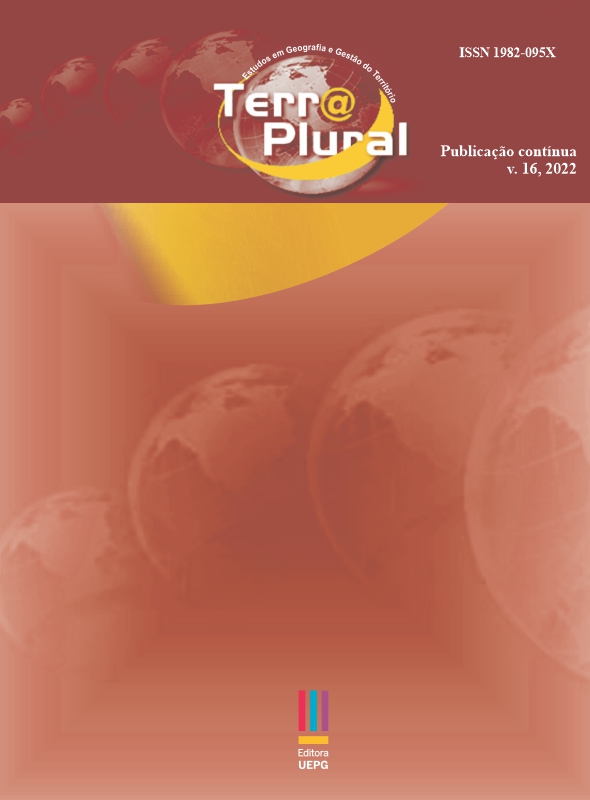A Geografia na construção do conhecimento em Administração
DOI:
https://doi.org/10.5212/TerraPlural.v.16.2220126.031Palavras-chave:
Administração. Gestão. Conhecimento administrativo. Formação acadêmica.Resumo
Com a emergência de um mundo globalizado, no qual decisões dependem de informações das mais variadas escalas geográficas, do local ao global, é fundamental que a gestão de empresas, sejam elas públicas ou privadas, estejam pautadas numa visão de totalidade. Com base nesse pressuposto, a hipótese desse estudo foi verificar a presença da Geografia formalizada nas grades curriculares dos cursos de Administração (no ensino superior). Os procedimentos metodológicos foram pautados
em uma verificação documental (mediante análise de currículo dos principais cursos de Administração do país), observando-se os dados sobre a formação oficial dos gestores e de que forma estão constituídas as grades curriculares destes cursos. Foi verificada deficiência no processo formativo dos administradores, constatando-se a falta de abordagens sobre noções fundamentais da Geografia durante as etapas de ensino. Tal condição evidencia que a ciência da administração ainda não reconhece formalmente o potencial colaborativo da Geografia enquanto disciplina chave para
estimular o pensamento espacial dos gestores e contributiva para o entendimento integral da realidade contemporânea.
Downloads
Downloads
Publicado
Como Citar
Edição
Seção
Licença
Copyright (c) 2022 Adilar Antonio Cigolini, André Scherer

Este trabalho está licenciado sob uma licença Creative Commons Attribution-NonCommercial-NoDerivatives 4.0 International License.
Os autores mantêm os direitos autorais e concedem à revista o direito de primeira publicação, que permite o compartilhamento do trabalho com reconhecimento da sua autoria e publicação inicial nesta revista. Os autores autorizam a distribuição para indexadores e repositórios institucionais, com reconhecimento da sua autoria e publicação inicial nesta revista. Autores são estimulados a distribuir a versão on line do artigo (por exemplo, em repositórios institucionais ou em sua página pessoal), considerando que isso pode gerar alterações produtivas, bem como aumentar o impacto e as citações do artigo publicado.

Este obra está licenciado com uma Licença Creative Commons Atribuição 4.0 Internacional.















